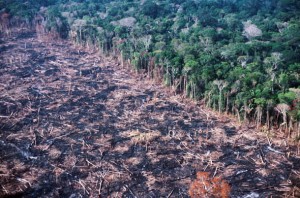 Patrick Hessini has joined the Minneapolis-based Avant Energy team as Vice President. Hessini’s main role will be to lead Avant’s consulting business and help to develop additional innovative energy projects and programs.
Patrick Hessini has joined the Minneapolis-based Avant Energy team as Vice President. Hessini’s main role will be to lead Avant’s consulting business and help to develop additional innovative energy projects and programs.
According to Avant Energy president Derick Dahlen, “Patrick enhances our ability to help municipal and cooperative utilities, educational institutions and corporations achieve their energy management goals.”
Hessini joins Avant from HB Fuller of St. Paul, where he most recently directed the company’s global consulting business, including leading project teams to develop green supply chain platforms and sustainability programs. Prior to joining HB Fuller, he was involved in wind energy business planning for ConocoPhillips and held numerous business leadership and project management roles in the energy industry.
“It’s clear to me that Avant’s rich portfolio of experience in utility management, renewable generation projects, and overall energy project management translates into superior results for our clients and customers,” said Hessini.


 Weather Services International
Weather Services International market participants,” said Ira Scharf, General Manager of WSI’s Energy and Risk Division. “The combination of WSI’s highly skilled wind power forecasting teamed with Enva’s expert understanding of the power grid creates an ideal pairing of forces to give energy traders and wind farm operators a true market edge.”
market participants,” said Ira Scharf, General Manager of WSI’s Energy and Risk Division. “The combination of WSI’s highly skilled wind power forecasting teamed with Enva’s expert understanding of the power grid creates an ideal pairing of forces to give energy traders and wind farm operators a true market edge.” The
The  A Texas biodiesel plant will expand its operation by four-fold.
A Texas biodiesel plant will expand its operation by four-fold. A Florida-based algae-biodiesel company has found an international market for a by-product of its clean energy business.
A Florida-based algae-biodiesel company has found an international market for a by-product of its clean energy business. Students across the country recently had a chance to have a blast with biofuels.
Students across the country recently had a chance to have a blast with biofuels.  With a little sugar, water, yeast, and a balloon, kids watched how yeast breaks down sugars.
With a little sugar, water, yeast, and a balloon, kids watched how yeast breaks down sugars. The
The  California-based
California-based  The Science magazine article that was published last week and co-authored by Tim Searchinger, a lawyer, has added another level of controversy to the indirect land use change (ILUC) debate. The article suggested the land use effects of fuel produced from various forms of biomass were miscalculated, in part, because they cause deforestation around the world as land is cleared to grow so called “energy crops”. EPA has yet to rule on RFS2 (
The Science magazine article that was published last week and co-authored by Tim Searchinger, a lawyer, has added another level of controversy to the indirect land use change (ILUC) debate. The article suggested the land use effects of fuel produced from various forms of biomass were miscalculated, in part, because they cause deforestation around the world as land is cleared to grow so called “energy crops”. EPA has yet to rule on RFS2 ( The
The